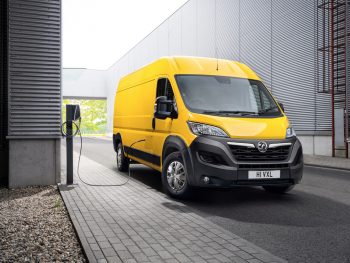Almost six out of 10 van fleets (58%) would consider sharing their charging infrastructure to help others go electric, the Association of Fleet Professionals (AFP) has found.

Its survey revealed 62% would consider co-operative agreements with other fleets to allow mutual access to depot infrastructure and 58% for their public facilities. Demand for arrangements of this type was considered most appropriate for businesses operating in Scotland, the West Midlands and the South West – areas typically underserved by charging.
The research also revealed the current EV infrastructure is a barrier to electrification for 65% of fleets when it comes to depots and 49% in a home scenario, with the largest cost impediments coming from – in order – charger installation, connection, hardware and energy.
Paul Hollick, chair at the AFP, said the topic of shared charging was coming under increasing focus as a way of solving the issue of limited infrastructure.
“Potentially, providing mutual access to charging could mean van fleets will be able to access power in areas where there is limited public charging in place or where energy prices are high for the chargers that are available.
“There are, of course, problems to solve, such as the mechanism for payment and a process of booking access to individual chargers, but these appear to be far from insoluble and could provide a valuable part of the charging options available to van fleet operators in the future. The research shows that there is a genuine interest in the subject.”
The research – carried out by global management consultancy Baringa and net zero data analytics specialist Field Dynamics among a panel of 40 AFP members – was undertaken ahead of the launch of a new AFP national charging map. Arriving later this year, it will reveal where new on-street infrastructure is most desperately needed for van operators.
Hollick said: “The new map will use data provided by a number of telematics companies and should provide the most accurate picture yet of where on-street charging is needed across the whole of the UK. We’ll be releasing details very soon.”

